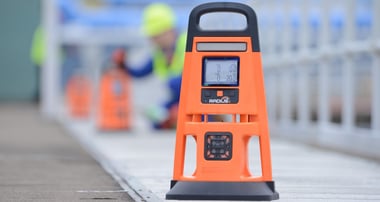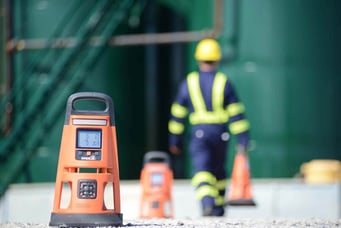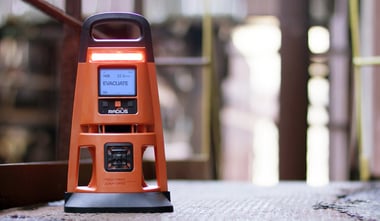 Turnaround projects bring unique challenges, such as an increased number of workers on-site, disruptions to standard routines, and exposure to hazardous gases like oxygen deficiency, combustible gases, carbon monoxide, hydrogen sulfide, sulfur dioxide, and VOCs. Ensuring robust gas detection is crucial to maintaining worker safety and minimizing downtime. This guide explores how turnaround gas detectors, including personal and area monitoring systems, can help achieve these goals.
Turnaround projects bring unique challenges, such as an increased number of workers on-site, disruptions to standard routines, and exposure to hazardous gases like oxygen deficiency, combustible gases, carbon monoxide, hydrogen sulfide, sulfur dioxide, and VOCs. Ensuring robust gas detection is crucial to maintaining worker safety and minimizing downtime. This guide explores how turnaround gas detectors, including personal and area monitoring systems, can help achieve these goals.
Why Renting Gas Detectors Makes Sense for Turnaround Projects
It’s a cost-effective solution. Renting gas detectors for turnaround projects eliminates the need for large capital investments and long-term maintenance costs. Renting helps avoid hidden expenses associated with purchasing equipment, such as service training and calibration costs. If you only plan to use the spare gas monitors for special projects, it doesn’t make sense to budget for the large capital expense of purchasing or maintenance costs throughout the year.
Next, there is an immediate availability of gas detectors. Rental units can often be delivered the next day, ensuring there are no delays in critical shutdowns. This is ideal for shutdowns that may arise unexpectedly. Additionally, renting offers the flexibility to scale equipment up or down based on changing project needs, providing a tailored solution to meet safety requirements.
Additionally, rental gas detectors arrive pre-calibrated and include calibration certificates, ensuring they are ready to use right away. This eliminates the time and effort required to set up or test devices. Rental packages often include necessary accessories like probes, spare batteries, and docking stations, providing full coverage for all monitoring needs.
Five Key Benefits of Renting Turnaround Gas Detectors
- Save Money: Renting gas detectors is more affordable than purchasing units that might only be used seasonally. Renting avoids the tax implications and disposal costs associated with buying disposable gas detectors. Purchasing gas detection equipment is considered a capital expense and must be treated as such at tax time.
- Flexible Rental Terms: Turnaround projects can be unpredictable in duration. Rental programs offer the flexibility to extend or reduce timelines as needed, ensuring continuous protection for workers without committing to long-term contracts. This flexibility is a significant advantage.
- Comprehensive Fleet Options: Renting provides access to a wide variety of gas detection equipment, including area monitors, personal gas monitors, and essential accessories. This variety ensures that all safety needs are met with the right tools for the job.
- Lower Maintenance Burden: With rental units, companies do not need to invest in training employees for equipment servicing. If a device fails, a replacement can be shipped within 48 hours, preventing downtime and maintaining operational efficiency. Every monitor in the fleet is serviced by Industrial Scientific employees and will come to you pre-set with your specifications.
- Reliable Connectivity and Safety Alerts: LENS™ Wireless peer-to-peer connectivity and satellite options ensure uninterrupted communication, even in remote locations. Real-time alerts notify teams immediately in case of gas exposure or device failure. If one instrument alarms, all others that are part of the same network will pick up the same reading.
Best Practices for Selecting the Right Turnaround Gas Detection Solution
- Evaluate Project Scope: Identify high-risk areas and gas hazards to determine the number of detectors required. This evaluation helps ensure comprehensive coverage and effective monitoring throughout the turnaround.
- Leverage Wireless Monitoring: Choose gas detectors that support peer alarm sharing to increase hazard visibility. Wireless monitoring enhances communication and ensures that all team members are aware of potential dangers in real time.
- Consider Future Needs: Renting detectors ensures flexibility for emergencies and unexpected project changes. This adaptability ensures that your safety equipment can meet both current and future needs without additional investments.
Gas Detectors for Turnaround Projects
 The Radius® BZ1 area monitor offers a battery life that can span multiple days, significantly reducing maintenance needs. Equipped with LENS Wireless technology, these devices provide instant network communication and easy setup without requiring IT infrastructure. Radius® BZ1 monitors start communicating right out of the box, ensuring seamless integration into your safety network.
The Radius® BZ1 area monitor offers a battery life that can span multiple days, significantly reducing maintenance needs. Equipped with LENS Wireless technology, these devices provide instant network communication and easy setup without requiring IT infrastructure. Radius® BZ1 monitors start communicating right out of the box, ensuring seamless integration into your safety network.
Integrating area monitors like Radius BZ1 with Ventis® Pro5 personal gas monitors offers dynamic hazard tracking. The peer alarm feature enhances situational awareness across the project site, providing a comprehensive safety solution that adapts to the movements and activities of all workers.
Optimize Your Turnaround with the Right Gas Detector Strategy
Renting gas detectors provides the flexibility, cost savings, and operational efficiency needed for successful turnaround projects. Pairing area monitors like Radius BZ1 with personal gas detectors ensures maximum site safety.
Explore Industrial Scientific’s gas detector rental program to equip your next turnaround project with the best safety monitoring solutions.



